Delaware is 1 of 3 states barring wine shipments. Here's why that could change soon
If you have ever tried to buy and ship your favorite alcoholic beverages to your home in Delaware, you know that it is not legal in the state.
Purchasing brews on tap from in-state distillers at your go-to bar or getting a margarita delivered is a hassle, too.
If a few new bills set to tackle these issues pass, alcohol shipment-related headaches could be a thing of the past for Delawareans as the state looks ahead to more inclusive alcohol distribution and shipping laws.
Direct-to-consumer alcohol shipments in Delaware
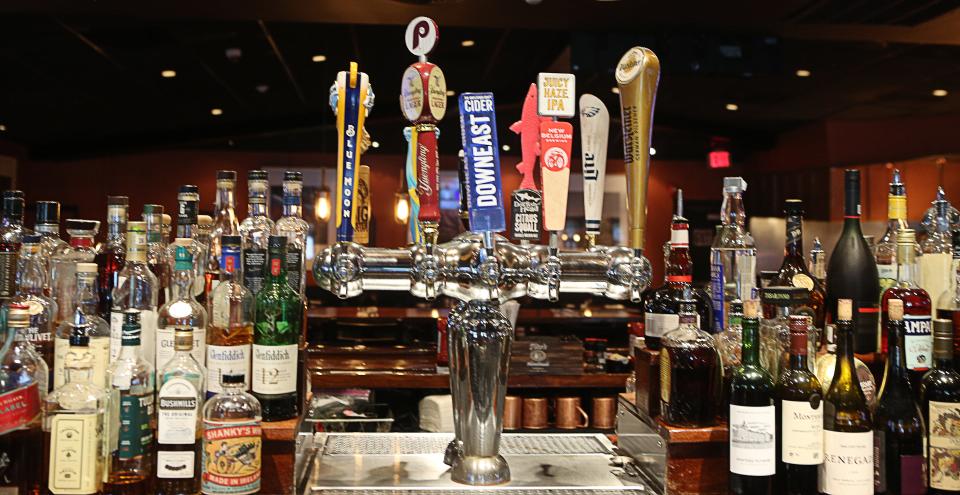
Under Delaware law, direct-to-consumer alcohol sales are not legal, whether through intrastate or interstate shipments or through food delivery services like UberEats, DoorDash and GrubHub.
Within the past year, a few bills have been introduced to address these issues.
House Bill 259 was introduced last July, with state Rep. Jeff Spiegelman, R-Clayton, as the primary sponsor, with the goal of “facilitate the interstate and intrastate shipping and delivery of alcoholic liquors,” according to the bill summary on the General Assembly website.
Delaware is one of three states – Mississippi and Utah are the others – where direct-to-consumer alcohol sales are prohibited.
Senate Bill 166 was introduced last June, with Sen. Jack Walsh, D-Pike Creek, as the primary sponsor, and seeks to allow Delawareans to purchase alcoholic beverages from a restaurant, tavern, taproom, brewpub or other entity with a valid on-premises license through third-party delivery services.
Delaware would be the 33rd state to allow customers to purchase alcoholic beverages this way.
House Bill 262 was introduced last July, primarily sponsored by state Rep. Michael Smith, R-Pike Creek, and aims to permit wine producers holding a valid license within Delaware or another state to “obtain a license and ship wine directly to Delaware consumers so long as it is done through a common carrier with a carrier permit,” according to the bill summary on the General Assembly website.
Under current Delaware law, residents are unable to receive wine shipments at state addresses, which is an issue for those wanting to order products from vineyards and wineries around the country.
What is going on with HB 259 now?
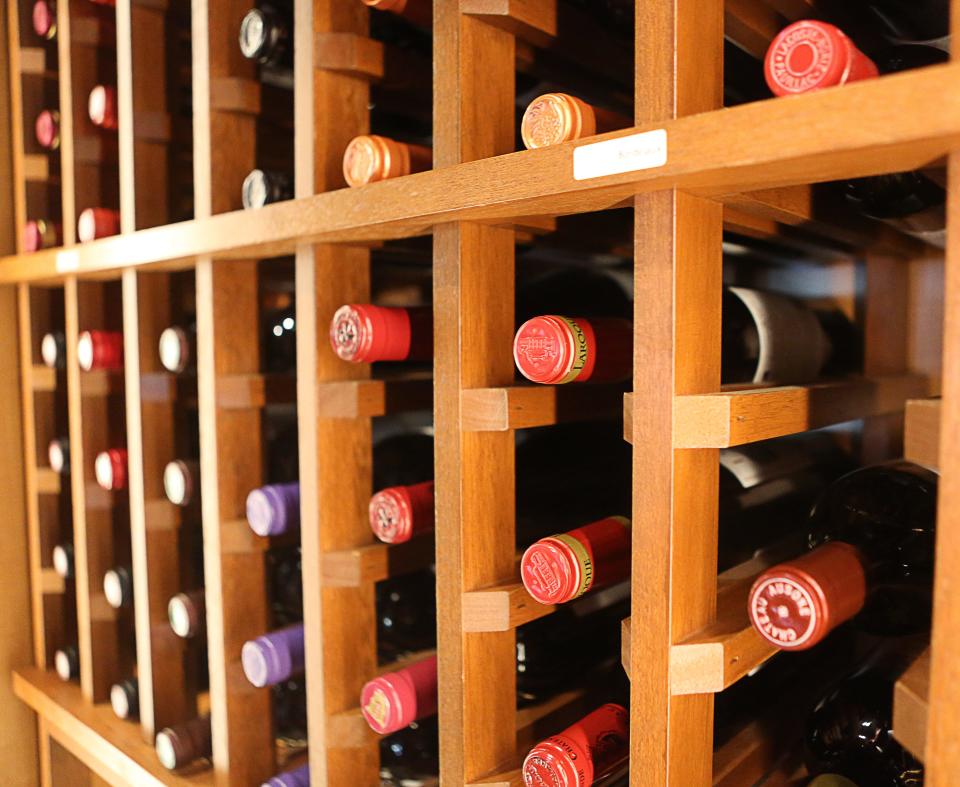
HB 259 focuses more on allowing small craft beverage businesses to ship directly to Delaware consumers as opposed to large companies. The bill directly highlights direct-to-consumer selling from a licensed “farm winery, microbrewery or craft distillery” in or out of state.
More specifically, HB 259 includes restrictions and requirements such as:
There must be a restriction on the number of alcoholic shipments an of-age consumer could receive in a year.
The direct shipper must be licensed by the Alcoholic Beverage Control Commissioner.
The licensed direct shipper must provide a notice declaring that a person must be 21 years of age or older to receive the shipment.
Ultimately, HB 259 was addressed by the House Economic Development/Banking/Insurance & Commerce Committee and failed on March 19.
What is going on with SB 166 now?
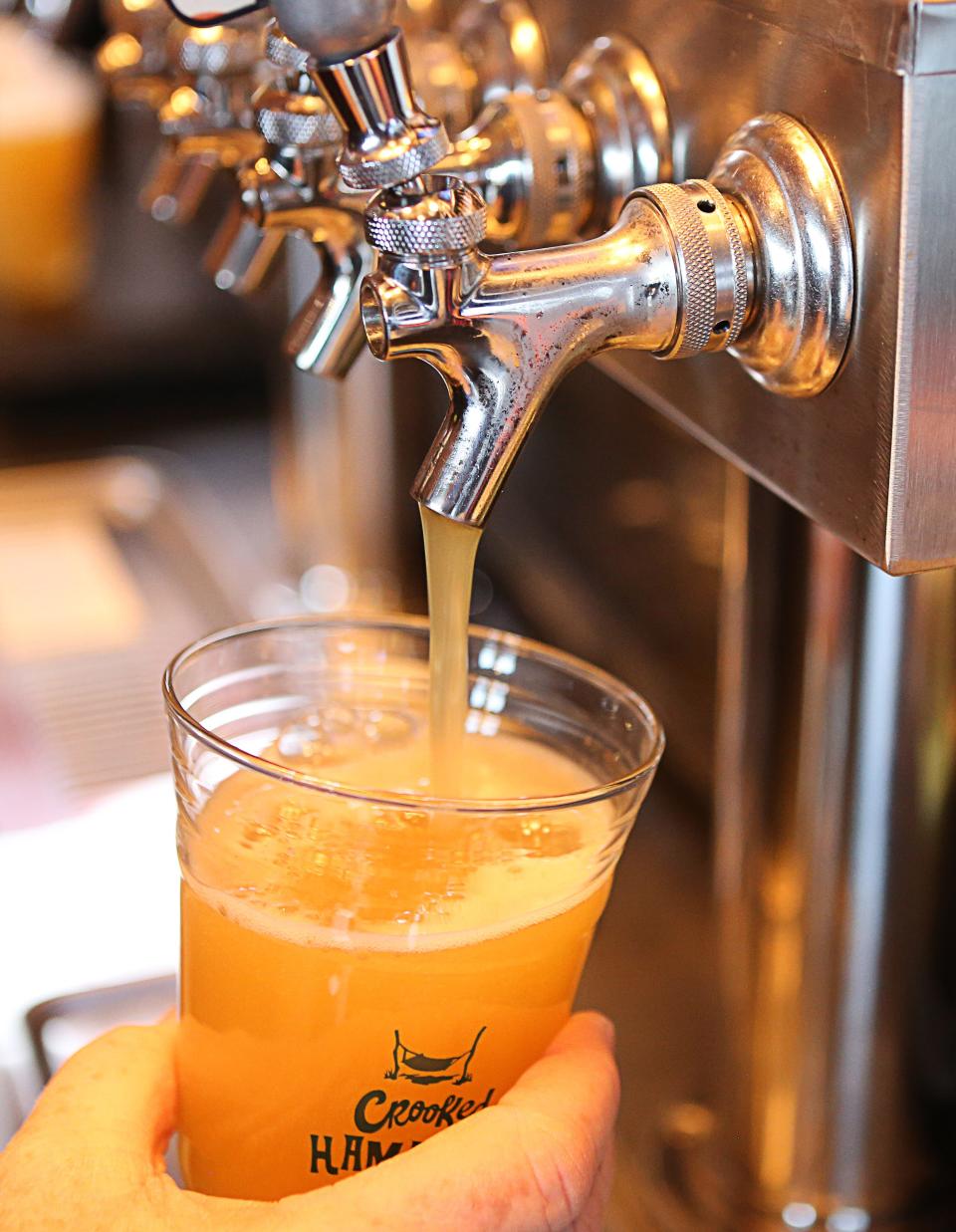
DoorDash recently released data showing that Dashers, delivery drivers employed by the company, earn nearly 20% more on deliveries with alcohol on average compared with deliveries without alcoholic beverages.
The company also reports that the number of total merchants selling alcohol on DoorDash marketplace in the country increased by 37% in the past year.
Aside from allowances for alcohol delivery, SB 166 adds that “the acts of a licensed consumer delivery permittee or delivery driver are not attributable to the retailer.”
SB 166 was passed by an 18 to 3 vote in the Senate on March 21. From there, it moved to the House Economic Development/Banking/Insurance & Commerce Committee, where it passed on April 23.
Now, the bill awaits consideration from the House Appropriations Committee before it can be discussed on the House floor.
ICYMI: Why this will be the last year for Constitution Yards beer garden as you know it
What is going on with HB 262 now?
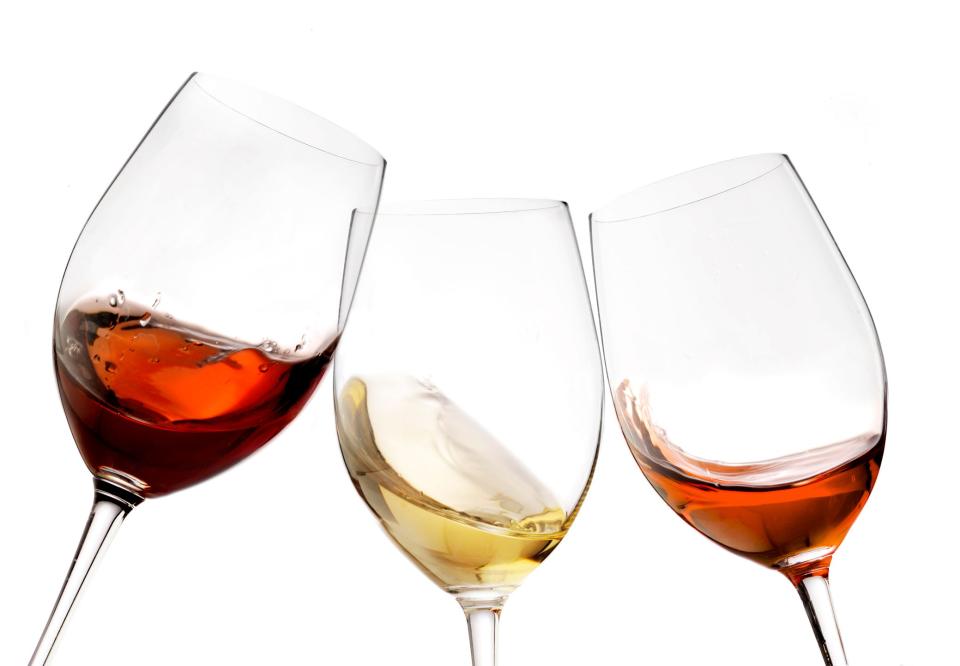
Along with an outline for wine delivery, HB 262 requires that wine producers pay the taxes normally due for wine.
The bill also caps the amount of win that a direct shipper of wine can sell to a single household at three 9-liter cases per year, requires the signature of a person 21 years of age or older before delivery can be completed and training regarding “how to deliver wine responsibly.”
Free the Grapes!, “a national movement seeking to expand consumer choice with legal, regulated DTC shipments,” has shown support for HB 262, declaring the bill a replica of models that have proven successful in other states.
“Delaware consumers continue to face needless restrictions on how they purchase and enjoy wine,” said Thea Schlendorf, executive director of Free the Grapes! “We hope that at this time next year, Delawareans will be able to enjoy special wines purchased directly from their favorite American winery.”
Of the three bills mentioned, HB 262 is the only one that has yet to have a committee hearing, a strategic move from Smith.
“I could have had that committee hearing already, but I think the value of hearing everyone's objection to other bills, and their support of other bills, have only built a bigger coalition of why this bill is a must-support,” said Smith.
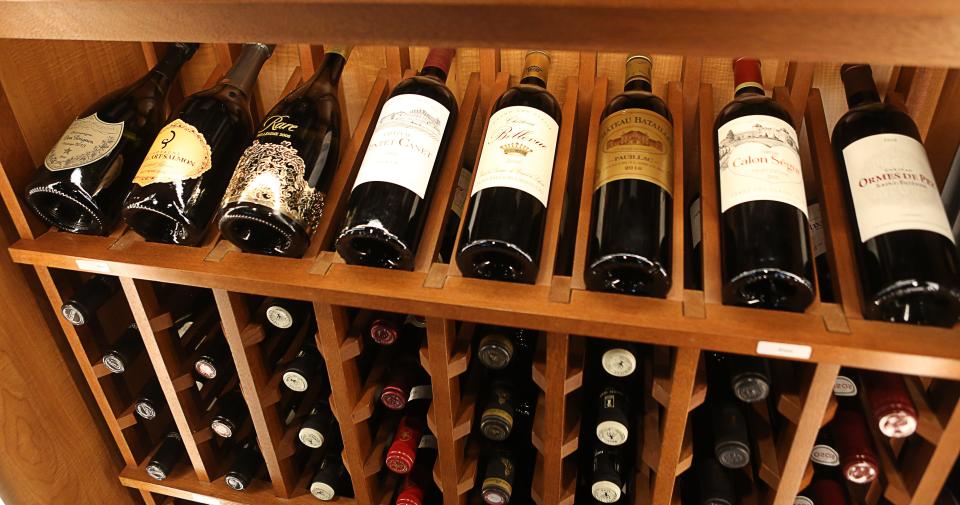
After going door to door in his district, Smith found that direct-to-consumer shipments are an issue his constituents feel strongly about, he said, with many admitting that, much like mobile sports betting, they have opted to cross state lines to do or get what they want before returning to their Delaware ZIP code. Smith’s introduction of similar DTC bills in recent legislative sessions can be attributed to these conversations.
“When you have interstate commerce the way our state does and everything, what stops people from shipping it right over the line and going and picking it up? Well, nothing, and that’s exactly what’s happening,” said Smith. “So why not just do it and make it legal for people, where the state is also getting a fee off of that and making money off of it?”
While seeing HB 259 get struck down and SB 166 continue to garner support, Smith found that most comments on these various direct-to-consumer bills are supportive of the premise, with opposers seemingly looking for small adjustments before they are ready to fully support such a bill.
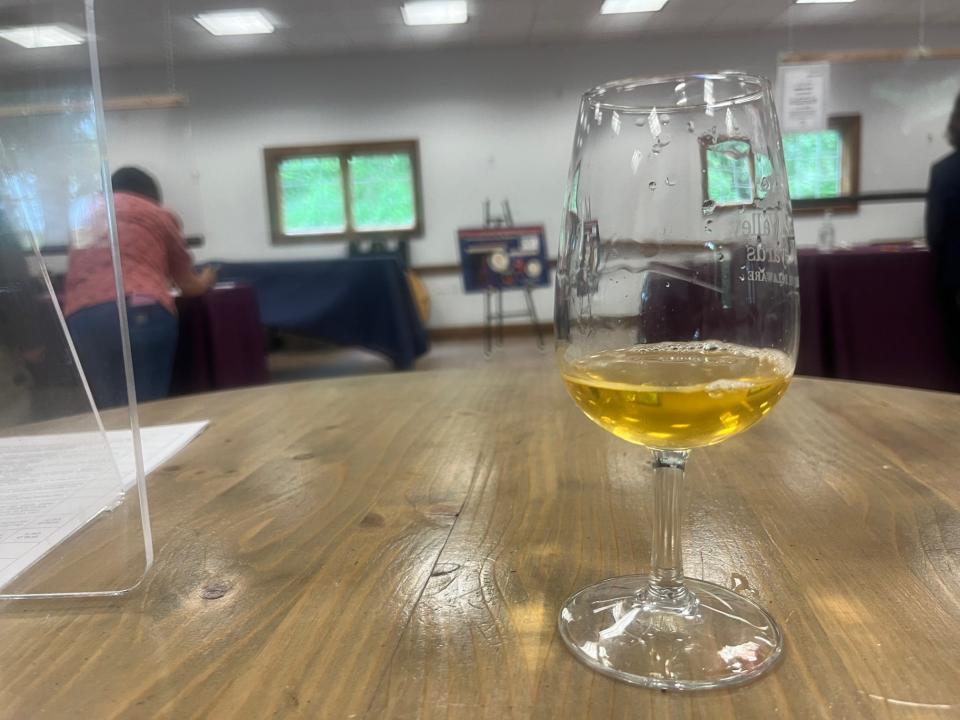
Through his research of DTC models in regional states, Smith has seen “a six percent increase for retailers” and better relationships between consumers and retailers, combatting the argument that DTC shipments hurt retailers. His meetings with groups that oppose the issue have emphasized that this bill is not hurting Delaware workers, companies or unions either. The only party hurting from a lack of a bill like HB 262 is the consumer, he said.
“It’s for Delaware consumers, and I think I’m of the belief that we’re on the same team about that,” said Smith. “We just need to stop having these age-old boogeyman arguments when we’re seeing it work in other states. And that’s how we model everything else that we do, so why would this not be the same?”
HB 262 is in the House Economic Development/Banking/Insurance & Commerce Committee and will be heard on May 14.
Coming soon: A new Wilmington wine bar is coming this fall in the site of a former comedy club
Local brewery rallies support for regulatory change allowing self-distribution
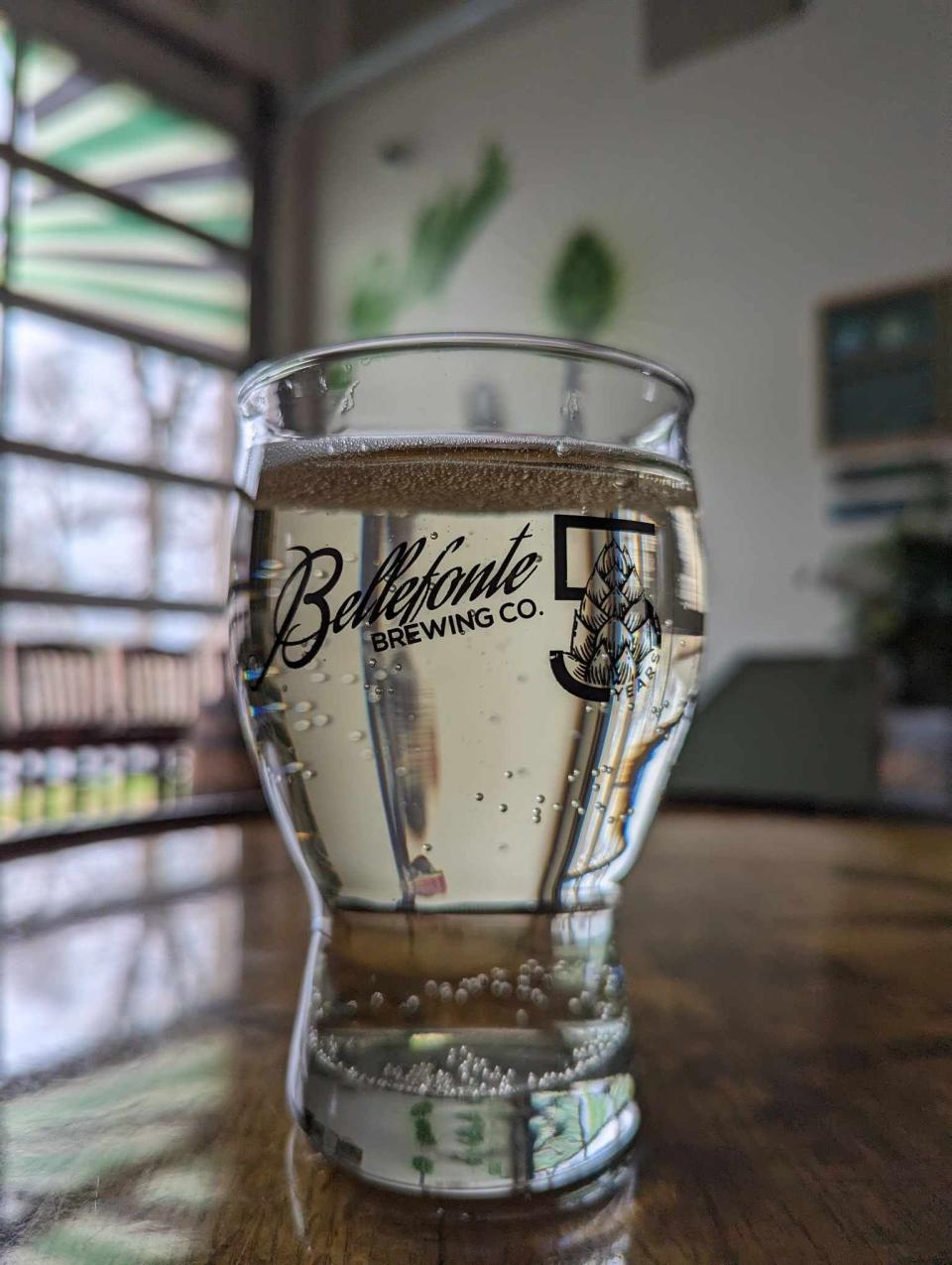
In a similar stride toward satisfying Delawareans and meeting consumers where they are at, regulatory change Rule 911 is a proposed regulatory change from the Office of the Alcoholic Beverage Control Commissioner that will allow small breweries in Delaware to distribute their own products.
This change would make way for more local brews to be available on tap at state restaurants and bars, allowing customers to find their favorite drinks outside of flagship locations and allowing the producers to take advantage of additional business opportunities.
Delaware is among a handful of states that do not allow independent brewers to distribute their own products, instead requiring breweries to sell to a third-party wholesale purchaser who can then sell that product to restaurants and retailers.
Wilmington Brew Works took to Facebook on April 23 to post about Rule 911, encouraging patrons to reach out to state representatives via email and show their support for Rule 911.
“Adoption of Rule 911 will be a huge win for small and independent brewers in Delaware. We’ll be able to work closely with bars, restaurants and venues here in Wilmington to ensure they have fresh, locally-made product at reasonable prices. (No middle-man markup!),” the business said in the post.
Rule 911 remains in a comment period through May 1.
Got a tip or a story idea? Contact Krys'tal Griffin at kgriffin@delawareonline.com.
This article originally appeared on Delaware News Journal: Delaware bills battling direct-to-consumer alcohol shipment, delivery

